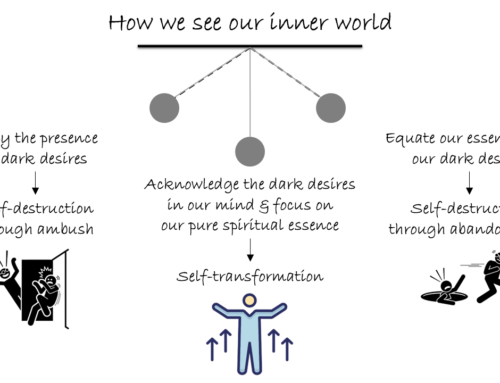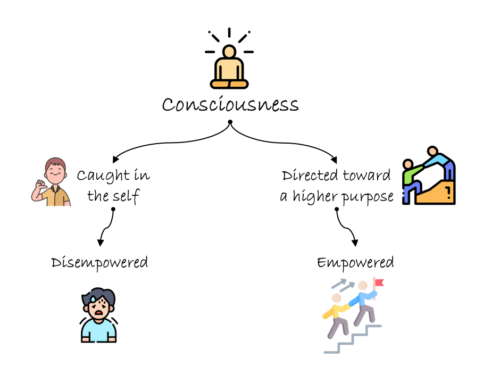The Bhagavad Gita (15.19) declares that those who understand Krishna as the Supreme Person, worship Him with all the emotions of their hearts. What is significant here is that the emotion – or more precisely the direction of the entirety of their emotions toward Krishna – is seen as a conscious choice that is exercised by those who understand his divine position. Cultivating emotions toward Krishna
Quite often, the intellectual and emotional pathways for our consciousness are seen as two distinct pathways which can sometimes align and at other times diverge, even going in opposite directions. For example, we may know that broccoli is good for us, but we may have no taste for it. In this case, the intellectual and emotional paths regarding broccoli go in different directions. The same often happens with respect to Krishna, wherein it is relatively easier to convince ourselves philosophically that he is the highest reality, but it is far more difficult to direct our emotions towards Him, let alone concentrate all of our emotions on Him alone.
While we can’t really force or legislate our emotions too much, we can still facilitate and cultivate their flow in particular directions. For example, people say that broccoli is an acquired taste, implying that by eating it regularly, they gradually develop a taste for it. Similarly, in the case of Krishna specifically, the taste that enables us to become focused on and absorbed in him during our meditation on him may well be an acquired taste. We may need to consciously and conscientiously expose ourselves to Krishna-centred stimuli such as his holy names, by which gradually we will develop an attraction toward him.
To persist in our exposure to Krishna-centered stimuli, we need the philosophical conviction that Krishna is the ultimate reality, the Supreme Person, the being who contains and sustains all beings, the divinity who can appreciate and reciprocate with our deepest longings for immortal love. Understanding Krishna thus is foundational for us to direct our emotions toward him. This conviction helps us hold our consciousness firm as it is exposed to the sound of his holy name, the sight of his Deities and the aural reception of His pastimes. Through such devotional practice, our desire or longing for Krishna will increase, as assured in Bhagavad Gita (12.9): maam ichhaptum dhananjaya.
Thus, philosophical conviction can sustain the conscious concentration that will lead to an emotional connect which will eventually lead to devotional absorption in the Lord.
Summary:
- Emotion and reason can be two distinct pathways along which our consciousness flows, sometimes in similar and sometimes in different or even opposite directions.
- Still, intellectual conviction can inspire us to expose ourselves to the stimuli that are good for us till we gradually acquire a taste for them.
- The philosophical conviction that Krishna is the ultimate reality can motivate us to focus our consciousness firmly on him till we develop an emotional connection with him and finally gain devotional absorption in him.
Think it over:
- Recollect a stimuli in response to which the emotional and rational pathways go in different directions for you.
- When has the rational pathway been the foundation for you to gradually foster an emotional connection and gain an acquired taste?
- In which aspect of your spiritual life can you use philosophical conviction to aid in the development of your devotional attraction?
***
15.19 Whoever knows Me as the Supreme Personality of Godhead, without doubting, is the knower of everything. He therefore engages himself in full devotional service to Me, O son of Bharata.



Leave A Comment